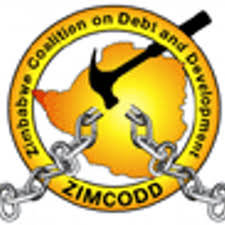By Byron Mutingwende
Zimbabwean civil society organisations (CSOs) have called for transparency and accountability in public finance management. This emerged at a workshop organised by the Zimbabwe Coalition on Debt and Development (ZIMCODD) at its Harare office meant to empower citizens to demand and influence transparent and accountable public finance management in Zimbabwe.
The officials also attended the meeting from the Auditor General’s office, Parliament, government departments, Zimbabwe Republic Police Investigative and Fraud Department, ZIMCODD members, CSOs and the media.
Grace Chikodzi, the ZIMCODD Programme Officer said that such activities are aimed at enhancing transparency and accountability in the management of public funds to influence the effective ways of managing the country’s debt and improve on the economic literacy of the populace so that they effectively participate in public policy issues that economic in nature.
“ZIMCODD is heavily concerned about public finance management and debt management issues in Zimbabwe as these lead to poor social and economic development for Zimbabwe. The country’s public debt currently stands at US$9.9 billion, which is not sustainable for the country. It is important to know that the majority of the Zimbabweans are not aware of debt management issues as some of the issues are shrouded in secrecy. Little information on public finance management has been divulged into the public sphere. The little information that has been open to the public is too technical and cannot be understood by the majority,” Chikodzi said.
Chikodzi added that since he country has also been characterised by high levels of corruption among the public officials, the citizens need to understand the public finance management systems of the country so that they will be able to demand accountability and transparency from the policy makers.
In her analysis of the implications of the Auditor General’s Report on social and economic rights, Danai Mabuto, the Team Leader of the Advocacy and Legal Advice Centre of Transparency International Zimbabwe said that corruption manifests in governmental activities through the appropriation of public assets for private use and embezzlement of public funds by politicians and high-level officials.
“Corruption can be described as the conscious attempt or deliberate diversion of resources from the satisfaction of the general interest to that of personal interest. It undermines economic progress, impedes policy changes required for development and diverts limited funds for private use,” Mabuto said.
Mabuto added that there is a strong correlation between corruption, poverty, and inequality.Ultimately, the poorest segments of the population are those who suffer the most from corruption, as they tend to be more vulnerable to bribe extortion and the amount of bribes represent a higher share of their income.
Corruption undermines the fairness of institutions and processes and distorts policies and priorities. As a result, corruption damages the legitimacy of regimes leading to a loss of public support and trust for state and government institutions. The seasoned anti-corruption advocate, Mabuto said there was a legal case on the anomalies raised in the Auditor-General’s Report.
Citing as an example of corruption cases involving public officials, she said Professor Jonathan Moyo was supposed to be prosecuted regarding his embezzlement of money at the Zimbabwe Manpower Development Fund (ZIMDEF).
“Section 174 of the Criminal Law (Codification and Reform) Act (Chapter 9:23) says if a public officer in the exercise of his or her duty or functions as such, intentionally does anything that is contrary to or inconsistent with his or her duty, he or she shall be guilty of criminal abuse of duty as a public officer.”
High levels of corruption in a society are likely to disable a state from fulfilling its duties to respect, protect, and fulfil the human rights of its citizens.
Public interest litigation can be used to challenge government policies and procedures that violate human rights or equality standards and to provoke the political system into responding to a problem it has hitherto ignored.
After the ZIMCODD meeting, using the public interest litigation approach as a basis for legal standing, one Hardlife Mudzingwa approached the High Court seeking to have Professor Jonathan Moyo brought before the court to answer to allegations of corruption involving public funds.
A member of the House of Assembly, Simon Chidhakwa, bemoaned the fact that the Executive was looting public funds with impunity and encouraged the generality of citizens and CSOs to take action against such malpractice, which had the potential of stifling economic development. Members of Parliament were encouraged to promote global tax audits as a tool for promoting public finance accountability.






